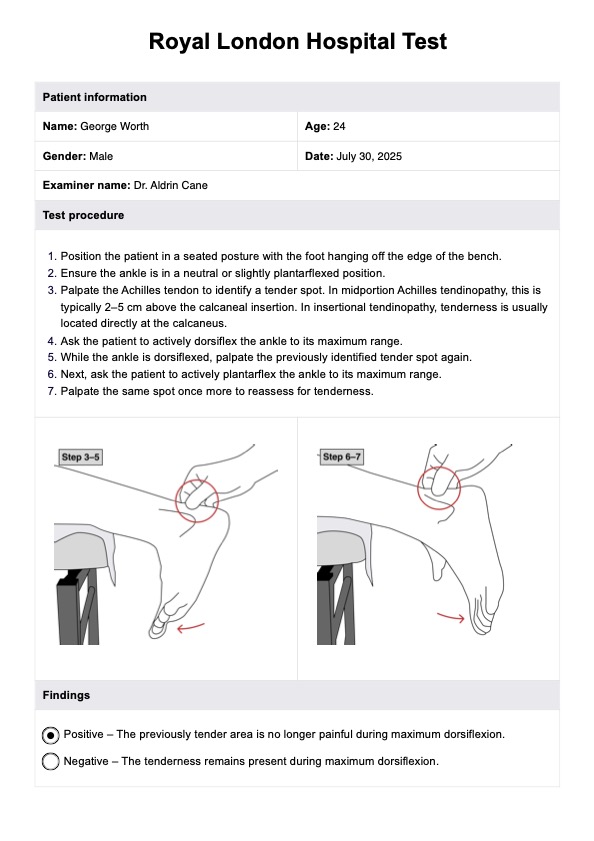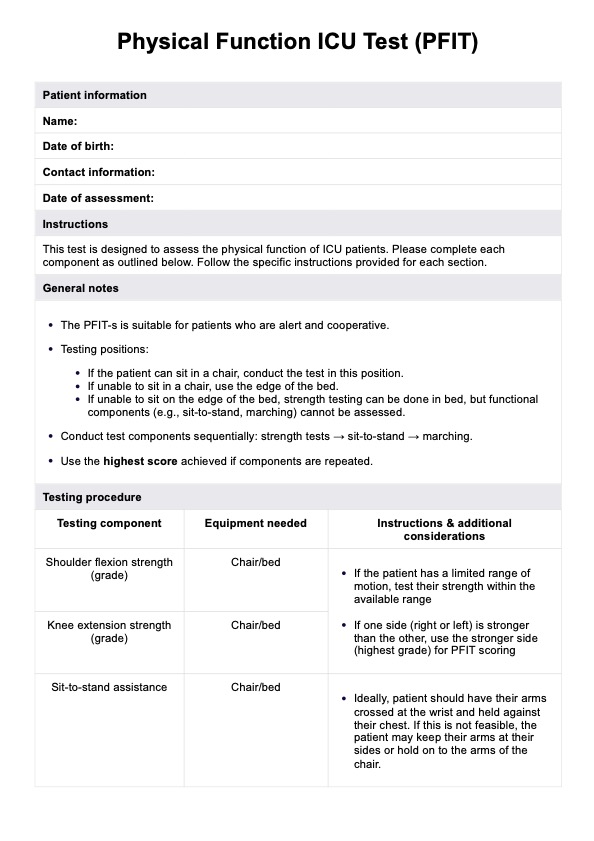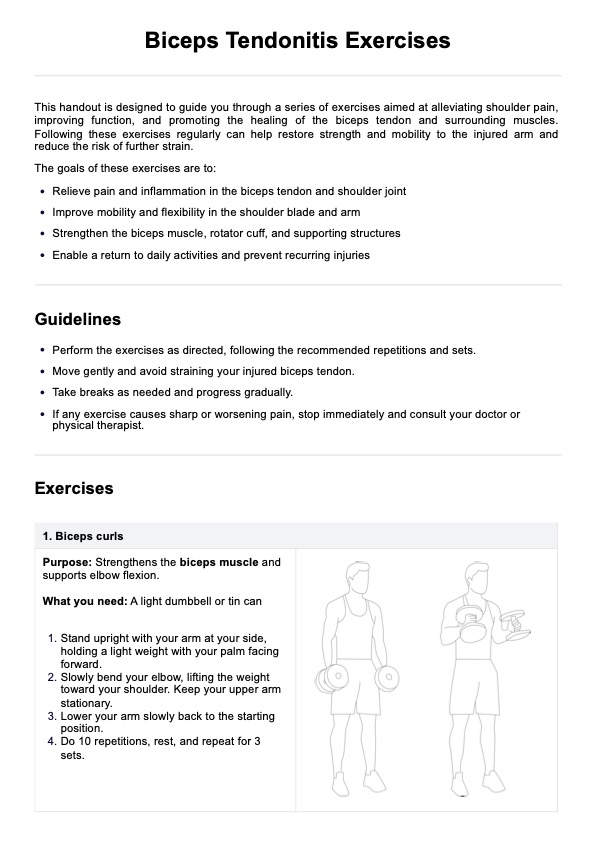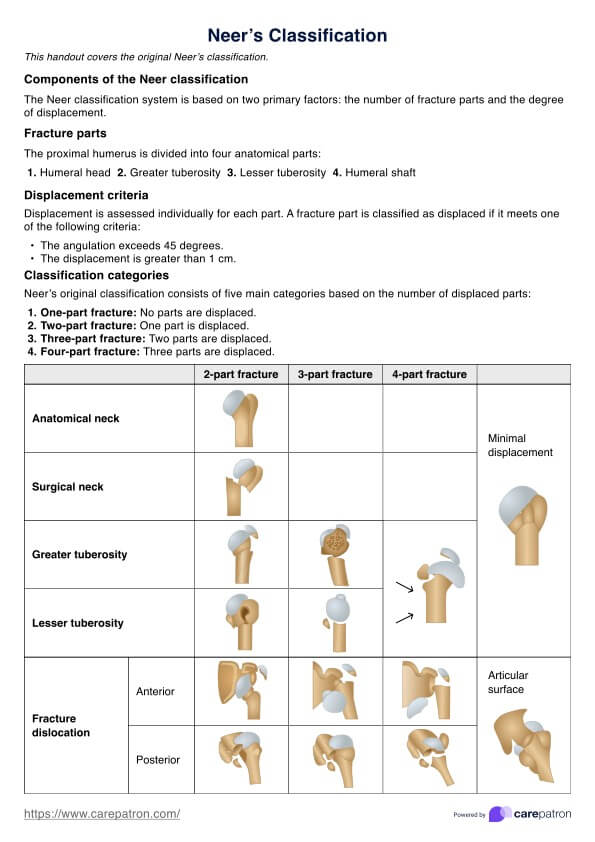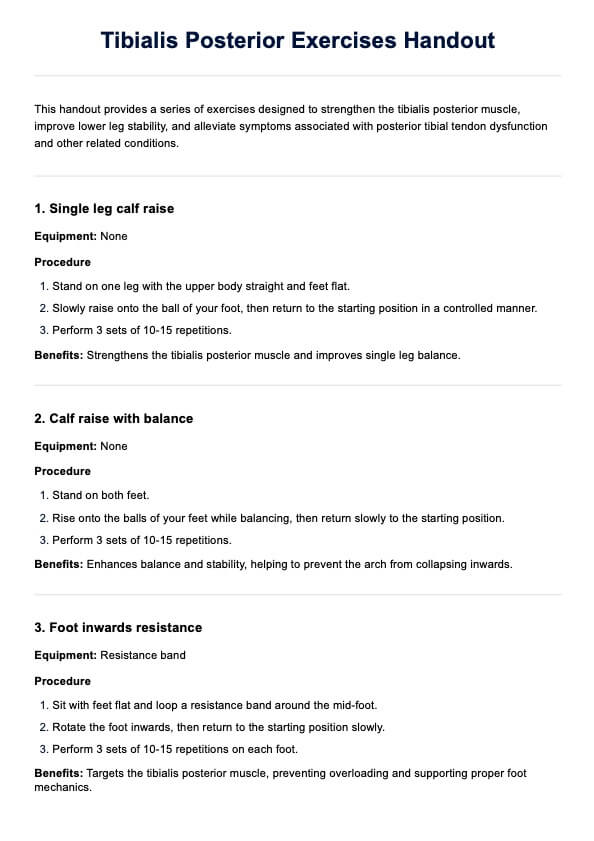Royal London Hospital Test
Explore the Royal London Hospital Test with our detailed guide, which is ideal for assessing Achilles tendinopathy. Download our free template for effective diagnosis and treatment planning.


What is Achilles tendinopathy?
Achilles tendinopathy is characterized by pain, swelling, and impaired performance of the Achilles tendon, the thick band of tissue connecting the calf muscles to the heel bone. Due to repetitive strain and overuse, this condition commonly affects athletes, particularly those engaged in running and jumping sports.
Symptoms of this type of tendinopathy
Achilles tendinopathy manifests through various symptoms that affect the structure and function of the tendon. Individuals may experience markedly reduced flexibility and persistent local tenderness in the tendon sheath. During tendon palpation, thickening of the tendon might be noticed, which is a key indicator of the condition.
Symptoms often worsen with activities that stress the tendon, such as knee flexion or walking, leading to increased local tenderness in the tender portion of the Achilles tendon. As the tendinopathy progresses, these symptoms may become more pronounced, significantly impacting daily activities and mobility.
Causes of this type of tendinopathy
Achilles tendinopathy is primarily caused by repetitive microtrauma to the tendon fibers, often from activities involving excessive tendon loading, such as running or jumping. Contributing factors include improper footwear that fails to support the foot or distribute the load evenly and inadequate stretching, which leads to decreased tendon flexibility and resilience.
Additionally, biomechanical irregularities, such as flat feet, can exacerbate stress on the tendon, leading to changes in tendon thickness and palpation findings. Over time, these factors collectively contribute to the positive findings of tendinopathy, characterized by thickened tendons, local tenderness, and pain considered positive during clinical assessments.
Royal London Hospital Test Template
Royal London Hospital Test Sample
What is the Royal London Hospital Test?
The Royal London Hospital Test is a specialized clinical evaluation designed to assess the condition of the Achilles tendon, particularly to detect the presence of tendinopathy. This test is valuable in the diagnostic process because it focuses on the mechanical and functional aspects of the tendon under stress.
The Royal London Hospital Test is a specialized clinical evaluation designed to assess the condition of the Achilles tendon, particularly to detect the presence of tendinopathy. This test is valuable in the diagnostic process because it focuses on the mechanical and functional aspects of the tendon under stress.
During the assessment, clinicians manually palpate the Achilles tendon to identify any areas of tenderness, which may indicate inflammation or damage. The patient is then asked to move their foot into maximum dorsiflexion and plantar flexion while the clinician re-palpates the tender spot. The change in pain level during these movements helps determine the presence or absence of Achilles tendinopathy.
The test is considered positive if the initial pain at the tender spot significantly decreases or disappears when the ankle is dorsiflexed. On the other hand, if the pain remains unchanged or worsens during dorsiflexion, it may indicate a negative result.
Common treatments for Achilles tendinopathy
The treatment of Achilles tendinopathy is aimed at alleviating pain and facilitating the tendon's recovery. Effective management strategies include:
- Physical therapy: Tailored exercises are crucial to strengthen the calf muscles and enhance tendon function and flexibility. This therapy also focuses on stretching exercises to increase tendon elasticity and reduce stiffness.
- Extracorporeal Shock Wave Therapy (ESWT): This non-invasive treatment uses shock waves to stimulate healing in the injured tendon. It's particularly useful for cases resistant to conventional treatments.
- Conservative management: The RICE protocol—Rest, Ice, Compression, and Elevation—is a foundational approach, especially soon after the injury. Additionally, over-the-counter or prescribed pain medications can effectively manage acute discomfort.
- Eccentric training: Gradual loading exercises that lengthen the tendon under tension can help remodel the tendon tissues and alleviate symptoms.
- Orthotic supports: Custom orthotics or heel lifts can reduce strain on the tendon by adjusting abnormal mechanics that contribute to tendon stress.
These therapies reduce immediate symptoms and implement long-term changes that prevent recurrence. Each patient's treatment plan may vary, often combining several options based on severity and specifics.
Commonly asked questions
The Royal London Hospital Test is a clinical diagnostic procedure used to assess the presence of patellar tendinopathy. It involves manual palpation of the patellar tendon to identify areas of tenderness and discomfort.
The test is performed with the patient lying down and the knee slightly bent. The clinician will apply pressure along the patellar tendon while the patient is instructed to move their ankle. Any increase in pain during palpation is noted.
Patients who are experiencing knee pain, particularly those involved in activities that place stress on the knees, such as jumping or running, may benefit from this test. It is particularly useful for those suspected of having patellar tendinopathy.
The Royal London Hospital Test is generally safe and non-invasive. Patients may experience some discomfort during the palpation, but it is typically brief and subsides quickly after the test.

.jpg)
